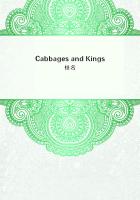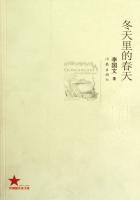In all this latter-day range of leisure-class activities that proceed on the basis of a non-invidious and non-religious interest, it is to be noted that the women participate more actively and more persistently than the men -- except, of course, in the case of such works as require a large expenditure of means. The dependent pecuniary position of the women disables them for work requiring large expenditure. As regards the general range of ameliorative work, the members of the priesthood or clergy of the less *****ly devout sects, or the secularized denominations, are associated with the class of women. This is as the theory would have it. In other economic relations, also, this clergy stands in a somewhat equivocal position between the class of women and that of the men engaged in economic pursuits. By tradition and by the prevalent sense of the proprieties, both the clergy and the women of the well-to-do classes are placed in the position of a vicarious leisure class; with both classes the characteristic relation which goes to form the habits of thought of the class is a relation of subservience -- that is to say, an economic relation conceived in personal terms; in both classes there is consequently perceptible a special proneness to construe phenomena in terms of personal relation rather than of causal sequence; both classes are so inhibited by the canons of decency from the ceremonially unclean processes of the lucrative or productive occupations as to make participation in the industrial life process of today a moral impossibility for them. The result of this ceremonial exclusion from productive effort of the vulgar sort is to draft a relatively large share of the energies of the modern feminine and priestly classes into the service of other interests than the self-regarding one. The code leaves no alternative direction in which the impulse to purposeful action may find expression. The effect of a consistent inhibition on industrially useful activity in the case of the leisure-class women shows itself in a restless assertion of the impulse to workmanship in other directions than that of business activity.
As has been noticed already, the everyday life of the well-to-do women and the clergy contains a larger element of status than that of the average of the men, especially than that of the men engaged in the modern industrial occupations proper.
Hence the devout attitude survives in a better state of preservation among these classes than among the common run of men in the modern communities. Hence an appreciable share of the energy which seeks expression in a non-lucrative employment among these members of the vicarious leisure classes may be expected to eventuate in devout observances and works of piety. Hence, in part, the excess of the devout proclivity in women, spoken of in the last chapter. But it is more to the present point to note the effect of this proclivity in shaping the action and coloring the purposes of the non-lucrative movements and organizations here under discussion. Where this devout coloring is present it lowers the immediate efficiency of the organizations for any economic end to which their efforts may be directed. Many organizations, charitable and ameliorative, divide their attention between the devotional and the secular well-being of the people whose interests they aim to further. It can scarcely he doubted that if they were to give an equally serious attention and effort undividedly to the secular interests of these people, the immediate economic value of their work should be appreciably higher than it is. It might of course similarly be said, if this were the place to say it, that the immediate efficiency of these works of amelioration for the devout might be greater if it were not hampered with the secular motives and aims which are usually present.
Some deduction is to be made from the economic value of this class of non-invidious enterprise, on account of the intrusion of the devotional interest. But there are also deductions to be made on account of the presence of other alien motives which more or less broadly traverse the economic trend of this non-emulative expression of the instinct of workmanship. To such an extent is this seen to be true on a closer scrutiny, that, when all is told, it may even appear that this general class of enterprises is of an altogether dubious economic value -- as measured in terms of the fullness or facility of life of the individuals or classes to whose amelioration the enterprise is directed. For instance, many of the efforts now in reputable vogue for the amelioration of the indigent population of large cities are of the nature, in great part, of a mission of culture. It is by this means sought to accelerate the rate of speed at which given elements of the upper-class culture find acceptance in the everyday scheme of life of the lower classes. The solicitude of "settlements," for example, is in part directed to enhance the industrial efficiency of the poor and to teach them the more adequate utilization of the means at hand; but it is also no less consistently directed to the inculcation, by precept and example, of certain punctilios of upper-class propriety in manners and customs. The economic substance of these proprieties will commonly be found on scrutiny to be a conspicuous waste of time and goods. Those good people who go out to humanize the poor are commonly, and advisedly, extremely scrupulous and silently insistent in matters of decorum and the decencies of life. They are commonly persons of an exemplary life and gifted with a tenacious insistence on ceremonial cleanness in the various items of their daily consumption. The cultural or civilizing efficacy of this inculcation of correct habits of thought with respect to the consumption of time and commodities is scarcely to be overrated; nor is its economic value to the individual who acquires these higher and more reputable ideals inconsiderable.















